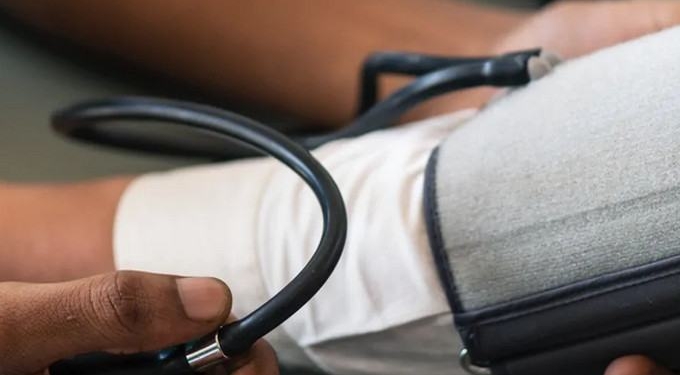
If you have hypertension (high blood pressure), getting the condition under control should be a top priority. Also, lowering your blood pressure is a great way to reduce your chances of suffering a stroke or heart attack.
A healthy blood pressure reading should fall somewhere between 120/80 mmHg and 139/89 mmHg, according to the CDC (Centers for Disease Control and Prevention). A blood pressure reading that is over 139/89 mmHg is too high. This reading can significantly increase your chances of suffering a severe heart attack or stroke. Blood pressure naturally increases and decreases based on activity levels and the needs of the heart. However, a consistently high blood pressure reading is a cause for concern.
Fortunately, prescription medicines like ACE inhibitors and Angiotensin II receptor blockers can help lower high blood pressure and also reduce your risk of developing heart disease, not to mention suffering a heart attack or stroke.
Those medications are effective. However, making smarter food choices can also make a difference when it comes to getting your blood pressure under control. In this article, we will detail 15 foods to avoid if you have high blood pressure. And we will highlight some foods that may help improve the health condition.
WHAT IS BLOOD PRESSURE?
In essence, blood pressure is the pressure that is placed on the artery walls as the heart pumps blood throughout the body. Healthy blood pressure helps the body function properly while blood pressure that is too high can have the opposite effect. It is also worth noting that the foods we consume play a critical role in how blood pressure impacts the body. For example, a high-fat, high-calorie diet can lead to obesity. Those extra pounds can lead to high blood pressure. A healthy, well-balanced diet, on the other hand, can help lower high blood pressure.
TOP 15 FOODS TO AVOID IF YOU HAVE HIGH BLOOD PRESSURE
Now that we have a basic understanding of hypertension, let’s take a look at some of the foods that can potentially worsen the health condition:
1. DELI MEATS
Processed deli meats like turkey, ham, salami, and bologna, for example, are often cured, seasoned, and preserved using salt. Those processes can quickly increase blood pressure. To further illustrate this point, the average 2-ounce serving of lunch meat generally contains as much as 500 mg of sodium. And this is before adding pickles, cheese, and other condiments, which can push sodium levels even higher.
2. BREAD
Similar to processed meats, bread is also high in sodium, and therefore, it should only be consumed in moderation if you have hypertension. Studies show that a single slice of bread can contain as much as 200 milligrams of sodium before ever piling on your favorite deli meats and condiments.
3. PICKLES
Unlike cucumbers, pickles undergo a preservation process that requires them to sit in a salt bath where they absorb a significant amount of sodium. According to the USDA (United States Department of Agriculture), 1 whole dill pickle spear contains roughly 390 mg of sodium, making them one of the top foods that should be avoided for those with hypertension.
4. PIZZA
If you’re a fan of pizza and have been diagnosed with hypertension, this is one food that you will want to avoid. Most pizzas, frozen or fresh, are loaded with cheese, cured meats, and tomato sauce, and all of these ingredients contain a large amount of sodium. In fact, many of the most popular pizza brands contain over 700 mg of sodium, according to the USDA.
5. RED MEAT
Despite being a great source of protein, red meat contains saturated fat and sodium, both of which can contribute to hypertension. It is also worth noting that the saturated fat in red meat can lead to clogged arteries, which can trigger heart disease, heart attacks, and strokes.
6. BACON
Despite being an American breakfast staple for so many people, bacon is sadly another food that should be avoided if you have hypertension. Bacon is chock-full of fat, sodium, and calories. According to the USDA, 3 slices of this delicious breakfast meat contains upwards of 576 mg of sodium, 311 calories, and 3 grams of saturated fat.
7. SATURATED AND TRANS FATS
If you have hypertension, it would be a good idea to eschew all foods that contain saturated and trans fats from your diet as they can both raise blood pressure. Some of the foods that contain saturated fats include full-dairy products, red meat, and chicken skin. As far as trans fats are concerned, they are primarily found in packaged and prepared foods like deli meats and frozen dinners, for example. Studies show that consuming too many saturated or trans fats can raise not only blood pressure but also your cholesterol. These fats can also increase your risk of developing coronary heart disease as well. Ideally, you should consider replacing animal, saturated, and trans fats with healthier plant-based fats, which can be found in seeds, nuts, olive oil, and avocados.















![Everything You Ever Wanted to Know About 9/11 Conspiracy Theory in Under 5 Minutes [VIDEO] | by James Corbett](https://consciouslifenews.com/wp-content/uploads/2018/09/911-a-conspiracy-theory-120x86.jpg)
